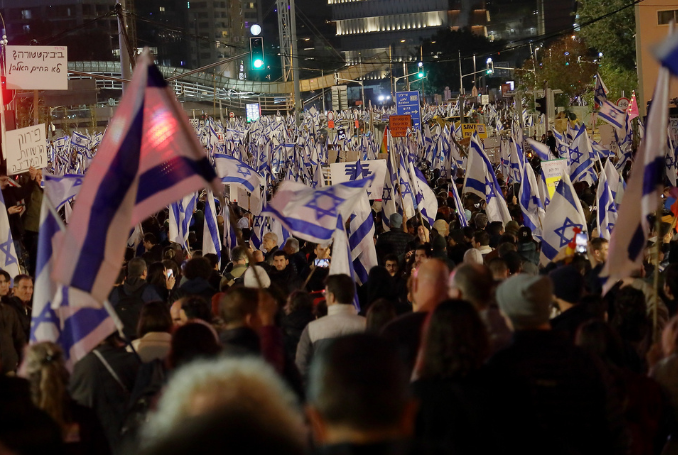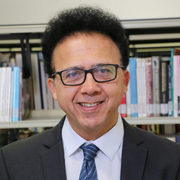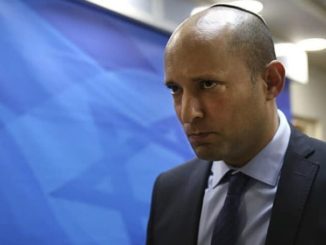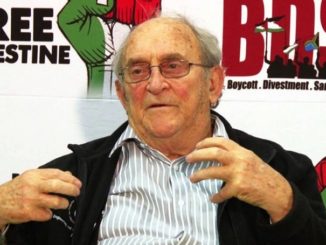
By Jamil Khader
The fact that Zionism is responsible for the Nakba and its ongoing campaign of ethnic cleansing, apartheid, and erasure is either denied or ignored in these social media commentaries, liberal news media, and some international leftist screeds.
Some social media influencers, liberal news media pundits, and even some activists in international leftist circles, believe that the anti-coup protests in the apartheid Jewish ethnocratic state are emancipatory.
They are under the wrong impression that these protests are radical enough not only to steer the apartheid Jewish ethnocratic state away from the extremist messianic Zionist ideologies that are taking over the state, but also to bring an end to the occupation.
They have posed the political choice in the apartheid Jewish ethnocratic state these days as one between “pro-democracy” protests and the settlorists (usually represented in mugshots of Bin Gvir and Smotrich).
In response to these attempts that package these protests in radical or emancipatory rhetoric, we must insist that there is nothing revolutionary or emancipatory about these protests in the larger struggle of decolonization in the apartheid Jewish ethnocratic state. These anti-coup protests are the obverse side of the pro-coup settlorist demonstrations.
Intersectional Except in Palestine
Leading organizations, including The Democrats, Kumi Israel and Maridim, that have coordinated the anti-coup protests all over the apartheid Jewish ethnocratic state do not place the occupation and the apartheid regime on both sides of the green line on their agenda, neither at the op nor at the bottom. Leaders of the anti-coup protests do not only deny that the occupation exists, since the “O” word is a “charged word,” but also outright deny any link between the judicial coup and the occupation.
These organizations, in fact, consider the settlements a controversial issue. Hence, they do not wade into these sensitive topics, for fear of alienating their right-wing supporters. The majority of the protestors are against the coup but not against the settlements. Unsurprisingly, speaker after speaker at the demonstrations rarely utter the “O” word, and if they do, it gets edited from the published version of their speeches.
Although some groups have pushed back and tried to bring attention to the occupation in these anti-coup demonstrations, these groups have remained fringe groups within the larger anti-coup protests. In fact, there are many fringe groups in these protests that agitate on different issues, including climate change, Ethiopian immigrant rights, LGBTQ rights, and women’s rights. What unites these groups is their rejection of “religious coercion,” not the apartheid regime on both sides of the green line.
Moreover, the “anti-occupation” groups have not been accepted into the fabric of the larger protests. Brawls have reportedly erupted between the anti-coup protestors and “anti-occupation” activists, because other protestors associate them with the peace camp, resulting in the exclusion and silencing of the latter
Moreover, these “anti-occupation” fringe groups are also politically and ideologically ambiguous at best. These groups are made of a disparate collection of army rejectionists/ objectionists, leftists and former establishment figures (ex-Mossad and military personnel). In their platforms, they express concerns about the humanitarian abuses and war crimes that the occupation military is committing in the occupied Palestinian territories.
These groups do not even call for the end to Jewish supremacy and apartheid on both sides of the green line or propose any just solution to the Palestinian struggle for freedom. They merely want to “look the occupation in the eye” and seem to settle for a more humane occupation.
Similarly, protests that were held in the settlements in the occupied Palestinian territories were not concerned about the Palestinians or ending the occupation. These protestors were more concerned about the toxic brand of Judaism that messianic settlorists represented and the privileges they enjoy. In fact, one of the protestors revealed not only that her soldier son served in Huwara, but also that somehow she “didn’t vote for a party that supports the settlements.”
Some of the protest organizers made it clear that the protests in the illegal West Bank outpost of Pnei Kedem, built on land stolen from the town of Sa’ir in the Hebron district, “was not against the settlements per se.” Rather, these protests were against Knesset members from the Religious Zionism party who reside in the settlement and who are key architects of the judicial overhaul.
Aestheticizing the Anti-Egalitarian Protests
Furthermore, the aestheticized and commodified forms of protest that earned these anti-coup protests global accolades betray any radical or egalitarian ideology. Some women protestors donned white bonnets and red capes like the characters in the TV adaptation of Margaret Atwood’s dystopian Handmaid’s Tales. These forms of protests turn activism into a marketable product and a passive form of engagement. Cosplay does not serve the goals of genuine emancipation.
Such aestheticized and commodified forms of protest have thus been easily coopted by consumerist capitalist culture that values surfaces and the superficial. These protests clearly try to frame the threat of extremist messianic Zionist ideology as a nightmarish intrusion of unreal (fictional) power structures into the alleged rational democracy, in which they live. This obscures and denies the fact that these oppressive autocratic structures are constitutive of the apartheid Jewish ethnocratic state.
In fact, some social commentators have compared the banner against gender segregation in the protests to Rosa Park’s struggle. They tried to coopt Park’s struggle against racial segregation and decouple it from her struggle as an African woman in a white supremacist society.
Interestingly enough, almost all comments on this tweet rejected this analogy, pointing out how Park dedicated her life to fighting against “racial discrimination” and “ethnic supremacy.” As long as anti-coup protestors, in the words of a commenter, “are not protesting occupation, apartheid and Israel being a Jewish ethno-state with Jewish supremacy enshrined in its basic laws,” they cannot be called emancipatory.
In other words, if the protests were truly radical and egalitarian, they would have protested the government policies that relentlessly continue investing in illegal settlorist outposts as well. They would also demonstrate against underdeveloping the indigenous Palestinian Arab community in the apartheid Jewish ethnocratic state.
These Protests Cannot Be Radicalized
In so far as these anti-coup demonstrations are grounded in Zionist settler-colonial ideology and its practices, these protests will never be either radical or egalitarian. As one speaker at these demonstrations stated, “All of us [are] born into a national movement that created miracles and that taught us that reality is strong but that our will is stronger.”
The liberal Zionist underpinnings of the anti-coup protests are not opposed to the reactionary ideology of the extremist messianic Zionist settlorists (settler-terrorists). They are founded on the same ideological principles. They do not compromise on the ideological and political givens that are common to the protestors, the liberal Zionist establishment, and the extremist messianic Zionist movement.
These anti-coup protests oppose religious coercion and merely want to preserve the liberal veneer of the apartheid Jewish ethnocratic state. Indeed, there is a broad consensus across all forms of settler-colonial Zionist ideology, even among the right-wing architects of the judicial overhaul, that the mythic communitarian democracy, aka the apartheid Jewish ethnocratic state, must always maintain its “liberal” veneer.
The self-delusions about the radical and egalitarian nature of the anti-coup protests merely perpetuate the mythic foundations of “the only democracy in the Middle East.” There is nothing transformative or emancipatory about these demonstrations. They merely reflect the unwavering determination of the European Ashkenazi establishment to maintain its Jewish supremacy, power, and privileges.
In fact, the liberal Zionist establishment has used these demonstrations to witness to the “vibrant democracy” that the apartheid Jewish ethnocratic state is supposed to be. As the Slovenian philosopher Slavoj Zizek apropos the massive demonstrations against the US attack on Iraq in 2003, the establishment used these protests to legitimize its war. Hence, Zizek calls these protestors “beautiful souls,” because they did not only do nothing to prevent the war, but they also refused to see their complicity in the evil around them.
Social media and liberal news pundits need to go beyond opportunistic progressive sloganeering and fancy banners brandished in these anti-coup protests. They also need to reconsider the compatibility of Zionist ideology with revolutionary and egalitarian politics, for no matter how much some leftists try to repackage Zionism in national self-determination claims, they will not be able to obscure its colonial-settler origins.
The fact that Zionism is responsible for the Nakba and its ongoing campaign of ethnic cleansing, apartheid, and erasure is either denied or ignored in these social media commentaries, liberal news media, and some international leftist screeds.
The sooner these “beautiful souls” recognize this and acknowledge their complicity with the Ongoing Nakba around them, the sooner they can confront, and perhaps reconcile with, their excessive enjoyment and work in solidarity with the oppressed and colonized in Palestine.

– Professor Jamil Khader is Dean of Research at Bethlehem University, Professor of English, and Editor at The Bethlehem University Journal. He contributed this article to The Palestine Chronicle.







